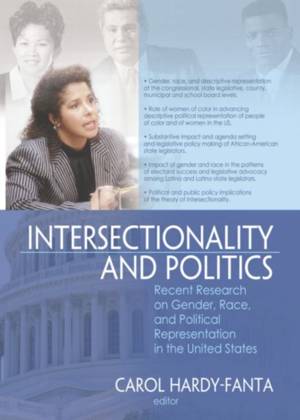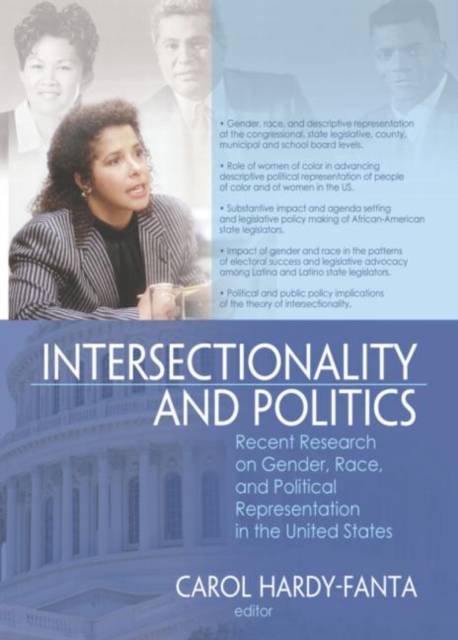
- Afhalen na 1 uur in een winkel met voorraad
- Gratis thuislevering in België vanaf € 30
- Ruim aanbod met 7 miljoen producten
- Afhalen na 1 uur in een winkel met voorraad
- Gratis thuislevering in België vanaf € 30
- Ruim aanbod met 7 miljoen producten
Zoeken
Intersectionality and Politics
Recent Research on Gender, Race, and Political Representation in the United States
Carol Hardy-Fanta
Hardcover | Engels
€ 274,95
+ 549 punten
Uitvoering
Omschrijving
Cutting-edge research on the intersection of race, gender, and politics
Traditionally, there has been a significant lack of empirical attention given to the ways in which race/ethnicity, gender, and political representation overlap. Intersectionality and Politics is the groundbreaking collection of contemporary research and essays that applies the concept of intersectionality specifically to descriptive and substantive representation by African-American, Latino/a, and Asian-American elected officials. This unique compilation looks at numerous states and focuses on multiple racial/ethnic groups to demonstrate the importance of this theory for understanding the political leadership of people of color and women. Intersectionality and Politics is the wide-ranging text that is both informative overview and thought-provoking analysis of a subject that has received little practical study. Articles in this important text cover a expansive gamutfrom women of color as elected officials and the changing face of leadership in America today to an exploration of the growing interest in intersectionality and a look toward the potential of future researchmaking it a useful and comprehensive one-stop resource. Contributors to Intersectionality and Politics explore critical topics such as:- the contours and context of descriptive representation with a focus on women of color
- the puzzle of women of color's proportionately higher percentage of office holding in state legislatures
- agenda-setting behavior of African-American female state legislators
- the impact of race and gender on the likelihood of legislative bill submission and passage
- patterns of gendered representation and related legislative advocacy within Latino delegations in the Southwest
- new findings on the Latino/a gender gap
- the public policy implications of intersectionality theory
- and many more!
Complete with extensive bibliographies and a wealth of tables and figures to highlight the striking findings, Intersectionality and Politics is ideal for undergraduate and graduate students and educators in political science, ethnic studies, Latino/Black/Asian studies, gender studies, sociology, and women's studies. Policymakers, politicians, and those working in high-minority areas will also find this to be an invaluable text.
Specificaties
Betrokkenen
- Auteur(s):
- Uitgeverij:
Inhoud
- Aantal bladzijden:
- 240
- Taal:
- Engels
Eigenschappen
- Productcode (EAN):
- 9780789036667
- Verschijningsdatum:
- 9/10/2007
- Uitvoering:
- Hardcover
- Formaat:
- Genaaid
- Afmetingen:
- 152 mm x 229 mm
- Gewicht:
- 489 g

Alleen bij Standaard Boekhandel
+ 549 punten op je klantenkaart van Standaard Boekhandel
Beoordelingen
We publiceren alleen reviews die voldoen aan de voorwaarden voor reviews. Bekijk onze voorwaarden voor reviews.











